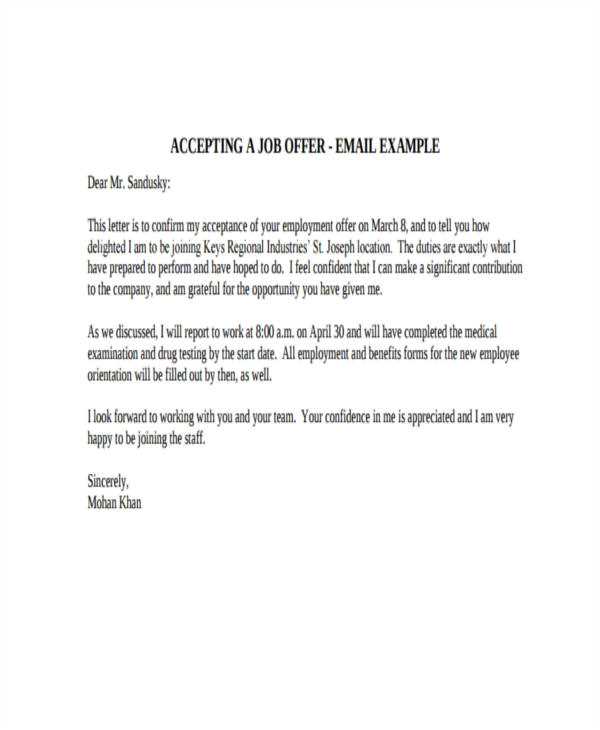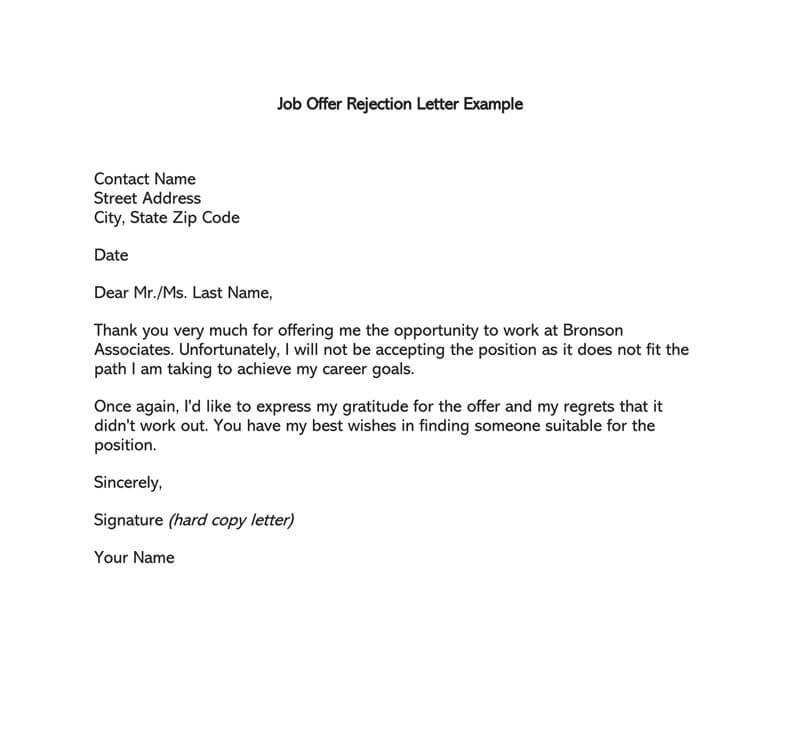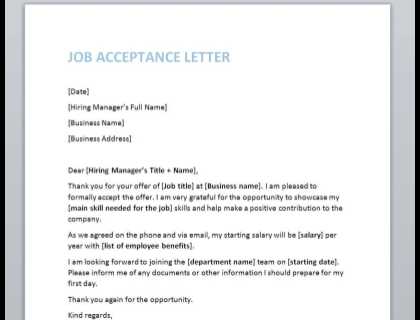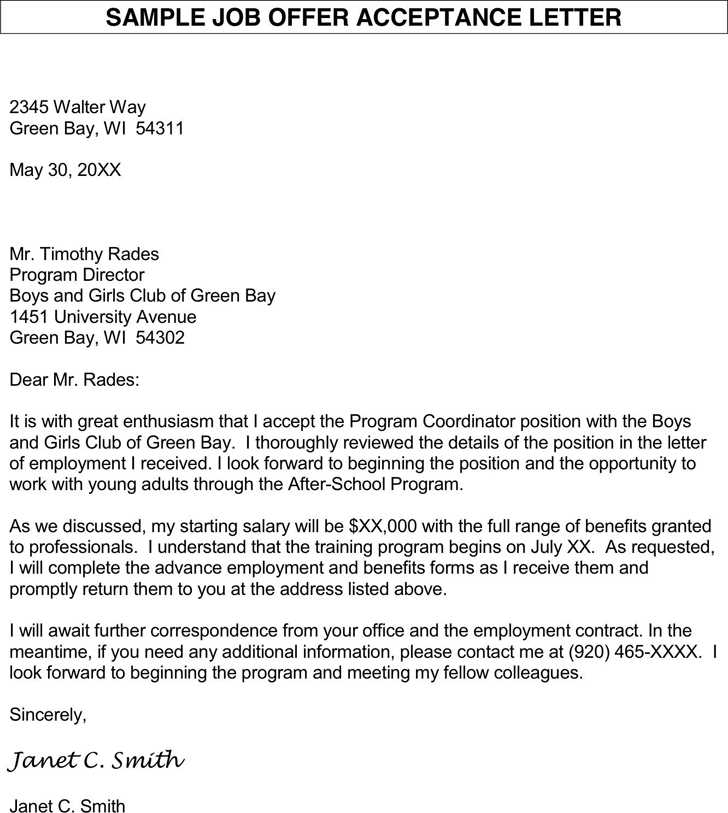How to Write a Job Offer Acceptance Letter Template

When you’ve secured a new role, it’s essential to acknowledge the opportunity formally. A well-crafted response shows professionalism and sets the tone for your future relationship with the employer. This communication confirms your commitment to joining the team and sets expectations for the next steps.
Key Elements to Include in Your Response
In any professional reply, there are a few critical components that should be addressed to convey clarity and respect. A clear expression of gratitude, confirmation of the position details, and any next steps are necessary. Below are the core elements to ensure your response is complete:
- Expression of gratitude: Thank the employer for the opportunity and express enthusiasm for the role.
- Confirmation of details: Confirm the position, start date, and any key terms discussed.
- Next steps: Mention the next actions, such as paperwork or meetings before starting.
Choosing the Right Tone
The tone of your reply is an essential factor. While a formal tone is often expected in professional communication, it’s also important to match the culture of the company. If you are joining a more relaxed environment, a slightly informal but still respectful tone could be appropriate. Conversely, for a corporate setting, a more traditional and formal response would be best.
How to Express Appreciation

Demonstrating gratitude in your response is vital for making a positive impression. Start with a clear acknowledgment of the opportunity, and ensure that your excitement about the new role is evident. A simple “thank you” can go a long way, but personalizing the message with specific details about why you’re excited to join the team will make it more impactful.
Common Mistakes to Avoid
Even with the best intentions, there are a few pitfalls to watch for when crafting your response. To ensure your communication is professional, avoid these common mistakes:
- Being too casual: While some roles might allow for a relaxed tone, never forget to maintain professionalism.
- Missing details: Always confirm the important aspects of the position to avoid misunderstandings.
- Delaying the response: Respond promptly to show enthusiasm and respect for the hiring process.
Examples of Professional Replies

Here is an example of a well-written response to get you started:
Dear [Employer's Name], Thank you for offering me the [Position] at [Company Name]. I am excited to accept this opportunity and look forward to contributing to the team. I am eager to start on [Start Date] and will be happy to complete any remaining paperwork. Please let me know if there is anything else I need to prepare before my first day. Sincerely, [Your Name]
How to Respond to a New Role Offer

When you’re ready to confirm your acceptance of a new position, crafting a well-structured response is key. This communication not only solidifies your commitment but also sets the stage for a positive professional relationship. It is your opportunity to express enthusiasm and make sure all key details are aligned before starting.
Why Crafting a Response is Important
Responding properly to a new position is essential as it reflects your professionalism and attention to detail. A thoughtfully written reply shows respect for the company’s hiring process and helps in establishing clear expectations moving forward. It also allows you to address any final questions or requirements before beginning the role.
Essential Components for Your Reply
While each response may vary slightly depending on the company culture, certain elements are crucial in any communication. These include:
- Gratitude: Acknowledge the opportunity with a heartfelt thank you.
- Confirmation: Restate the position and start date to ensure alignment.
- Next steps: Clarify any follow-up actions, such as completing paperwork or attending a meeting.
Formal vs Informal Tone in Responses
Choosing the appropriate tone for your message depends on the organization’s culture. For corporate environments, a formal tone is generally expected, while for more relaxed workplaces, you may opt for a slightly less rigid approach. Regardless of the tone, always remain professional and respectful.
How to Show Appreciation in Your Reply
Appreciation should be evident throughout your communication. A simple yet sincere expression of thanks for the opportunity can go a long way. You can also personalize your response by mentioning why you’re excited to join the team or how you’re looking forward to contributing to the company’s goals.
Frequent Errors to Avoid in Replies
To ensure your response is professional and error-free, keep in mind these common mistakes:
- Being overly casual: Avoid using slang or informal language in professional communication.
- Leaving out important details: Double-check that all terms, dates, and expectations are clearly stated.
- Delaying your response: Timely communication reflects eagerness and respect for the hiring process.
Example Responses for Role Acceptance
Here’s an example of how to craft your reply:
Dear [Hiring Manager's Name], Thank you for offering me the position of [Position Name] at [Company Name]. I am thrilled to accept the offer and am excited to begin contributing to the team. I look forward to starting on [Start Date] and will complete any required paperwork beforehand. Please let me know if there is anything else I need to prepare prior to my first day. Sincerely, [Your Name]